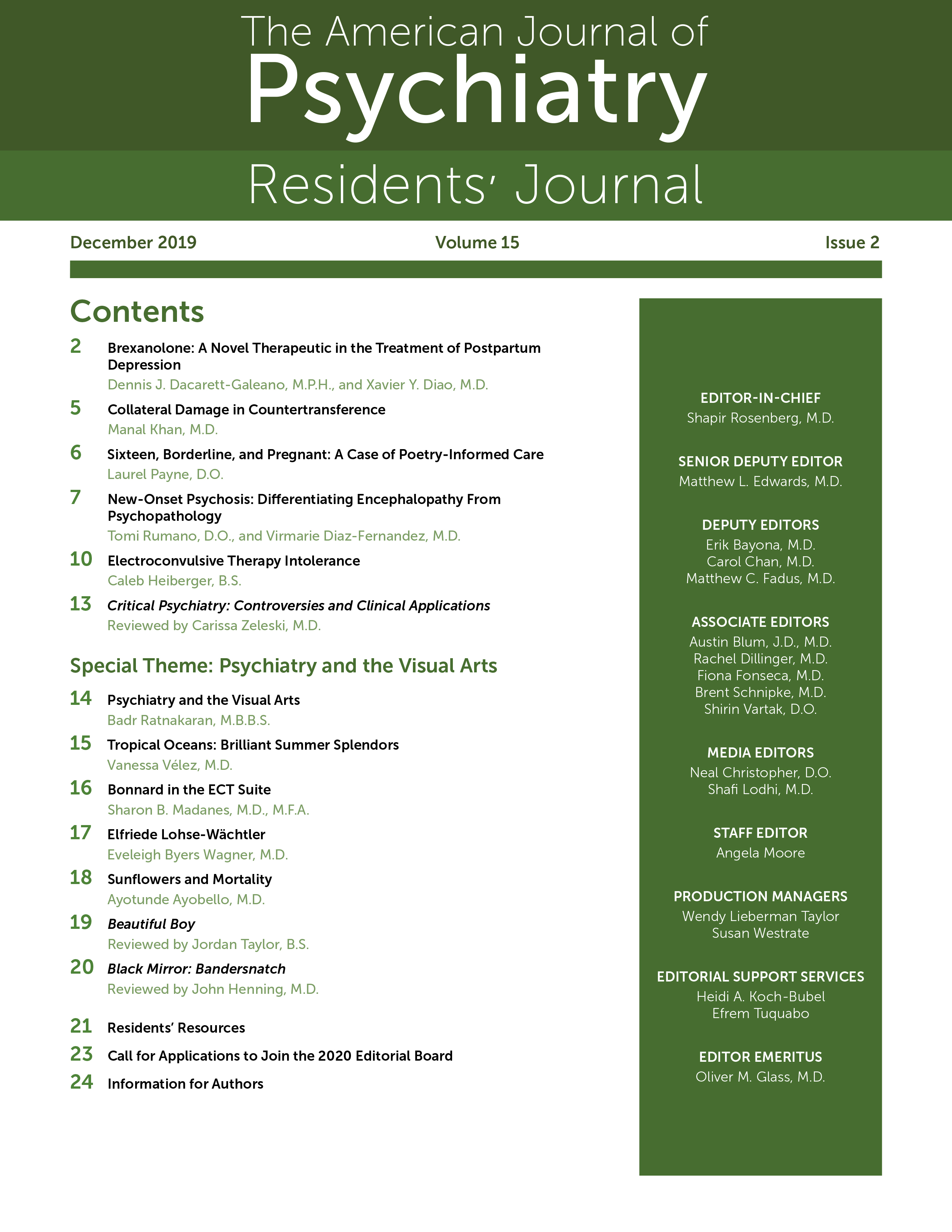The conversation begins with, "You don’t know what I have done." It’s a preamble to what he considers truly atrocious. Conditioned by my training, I use a curious and silent stance to prompt him to tell me more. "When you are in the military, you don’t operate like normal people, you have to do things.… I have done things.… I have killed people.… I have killed children."
My hand reflexively searches for my cell phone. I need to hold it. As a new mother, I am expected to share pictures of my 17-month-old toddler so frequently that in his absence, the cell phone has become a transitional object. In this moment, clutching my cell phone is the physical manifestation of my urge to protect. I have seen enough images of young brown boys—boys just like my son, boys I grew up with—bleeding, screaming, scared, and dead. My visceral reaction is anger: "How dare you? After perpetrating trauma, you are claiming to be traumatized? You don’t belong here. Your victims do!"
I am appalled by the injustice of access to care. My heart is breaking knowing that those children did not have this opportunity. They probably passed away without access to basic medical aid, let alone a psychiatry appointment. There are not enough doctors in those countries. There are not enough "me’s." I am not there. Am I an accomplice by choosing to serve him and not them? My throat starts to constrict, and I fight back tears. This time, I choose silence because I am afraid my voice will quiver. I am also overwhelmed by a new emotion: guilt. I need a moment to metabolize all that’s happening inside me.
Over the course of my residency training, I have developed the habit of using narratives to understand stories of patients in their rich, multifactorial contexts. I begin to contextualize his painful experiences: chaotic upbringing, youth recruitment, military hazing, substance use, war and a constant fear of death, return to his home country, transition to civilian life, loss of identity, and now having to sit across from a brown female physician. As I contextualize his experiences, I do the same for mine: privileged in my home country, educated in a low-resourced setting, transition to a high-income country, loss of privilege, guilt about the transition, guilt about not serving those who raised me, guilt about not being able to correct disparities—guilt! There are always two stories in the room, and through clinical supervision, personal psychotherapy, process groups, and self-reflection, we can begin to understand the complex interactions between these stories.
The war may be over for us, but we are both battling guilt. He is here hoping that I can help him heal, and I am hoping the same by writing this story. I find solace in knowing that we are alike. All of us. There is no us and them, no matter how loudly and frequently we are told otherwise. We share the same emotions, similar heartbreak, and identical yearning for redemption.
